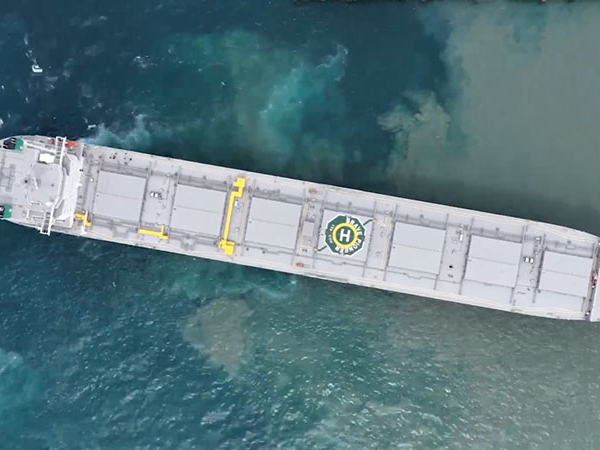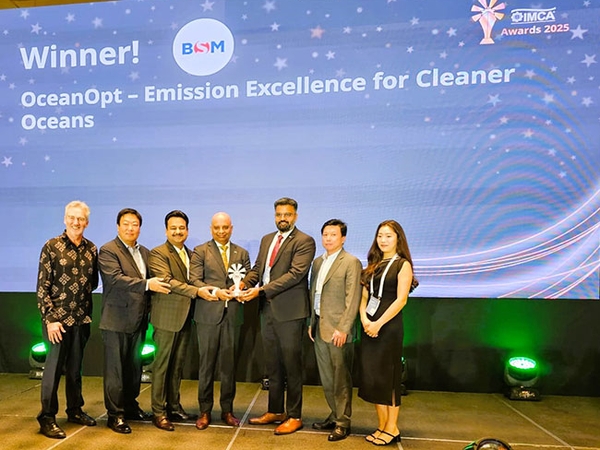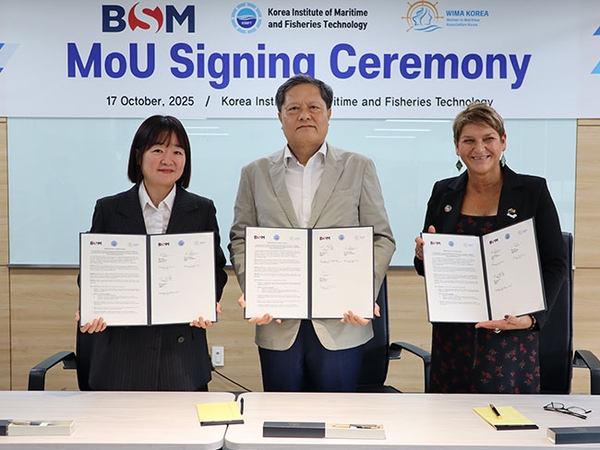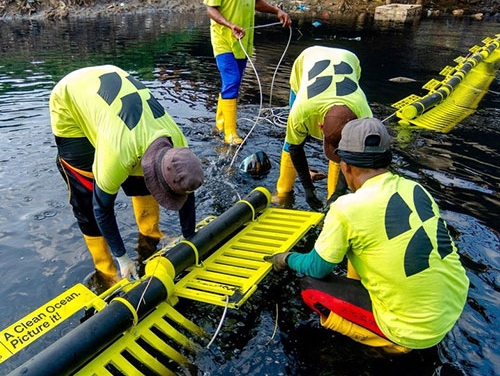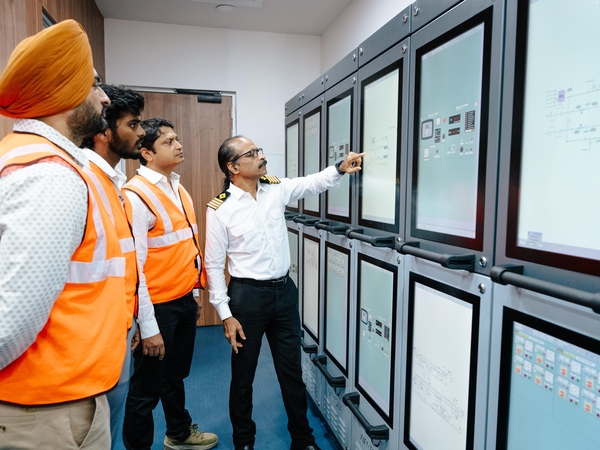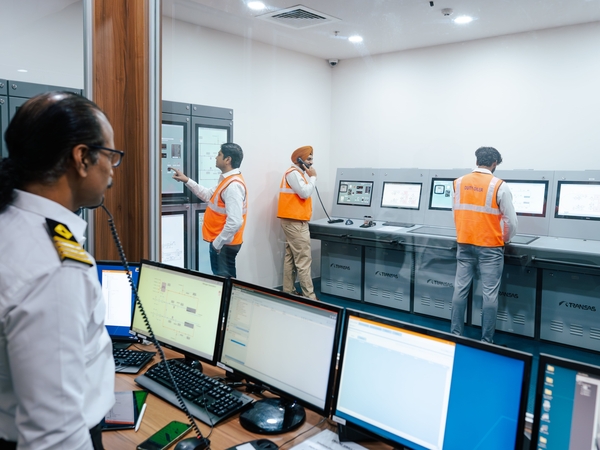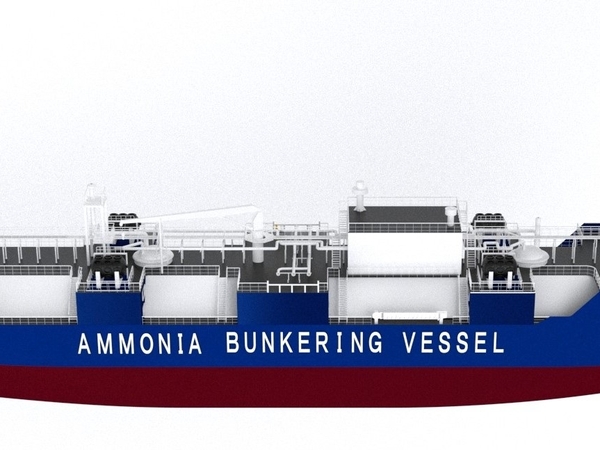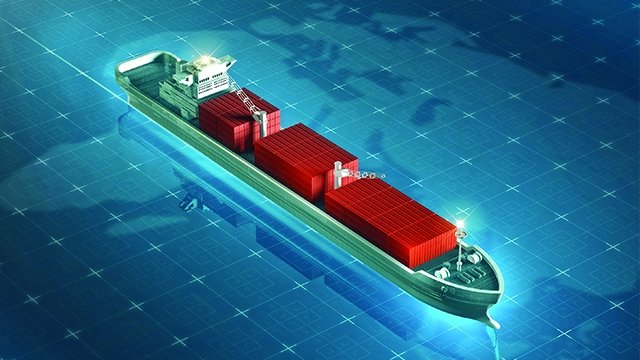
Many people in the maritime industry now believe it is about to undergo a technological change of such seismic proportions that it will alter the business dynamic forever.
The last couple of years have produced much debate about ‘intelligent ships’, ‘unmanned vessels’, ‘disruptive technology’ and the growing realisation that shipping does not exist in a vacuum but is just one part of the increasingly sophisticated global transport chain.
For many, the ultimate goal is ‘autonomous’ vessels driven by technology and the intelligent use of data, but there is no industry consensus today as to whether unmanned ships are part of the industry’s future with most experienced industry observers believing they are some years away.
But there is a strong view that the use of digital technologies will deliver safer and more efficient ships and this is the reality of shipping and its relationship with technology today.
Bob Maxwell, Managing Director of BSM’s Singapore- based Ship Management Centre, is one of those who believes that significant technological change in the industry is coming faster than some suppose.
“Increased automation is certainly coming our way and if it means totally unmanned ships, or a step in that direction, we would be foolish to pretend that it will not happen,” he said.
Bob believes the trend towards smarter ships is driven by the need for greater energy efficiency and the rising tide of shipping regulation, as well as commercial pressures.
But he cautions that shipping is a long way off from ‘Big Data’ where terabytes per minute of data are used to monitor and predict trends.
BSM has been working on the areas of data collection, analysis and interpretation to support decision-making for several years with the goals of further improving operational safety, reliability and efficiency and to make work at sea and ashore more efficient.
Bob believes that data collection must be done in the right way with the correct equipment installed on board and understood by ship and shore staff alike.
“The number of sensors and measuring devices required to accurately monitor machine and vessel performance is underestimated, and there is also a misperception that this information will be reviewed by humans ashore instead of on board.
Proper digitisation means that computers will do the analysis and produce alerts and reports based on trends, but it does not remove the crew from the process,” he noted.
He believes that problems such as high cylinder temperatures or low oil pressure, for example, will still have to be managed on board until the industry acquires the right predictive technology and has the confidence to rely on it.
“Too often we have seen examples of bearings flagged for change by vibration analysis surveys only for engineers to test them manually and declare they are still OK,” he observed. This usually ends in a machine failure if they are re-used.
BSM has adopted a range of measures aimed at supporting condition-based maintenance activity, with improvements in hull and propeller efficiency being a particular example.
Calendar-based maintenance, used by the industry for years, clearly has its place in the efficient running of vessels but for BSM the move towards enhancing this through the greater use of condition-based maintenance is crucial - which means a greater use of digital technology.
Take for example the in-house developed PAL software system, an integrated ship management software suite, which is used on all BSM-managed ships.
Bob explains, “PAL forms the basis of our planned maintenance management system which includes calendar maintenance with respect to machinery running hours and condition-based maintenance, which is an enhanced system we use with electronic engine indicators.”
A recently introduced PAL Voyage Module is being used to monitor ship performance with the data compared to past voyages so that, “we are able to get a good idea about the macro-level performance of the vessel and provide accurate information on the right timing for propeller and hull cleaning,” he says.
BSM is rapidly moving towards integrated maintenance management and the goal is to increase utilisation of electronic data.
“We are using thermographic surveys, vibration surveys, liner scrape down analysis and lube oil analysis and these will go into our planned maintenance in real time eventually. The intent is to use them all together to produce the best maintenance schedule for cost and reliability purposes.
“The Voyage Module is providing a greatly improved view of vessel machinery and hull performance. Crucially, it also produces reports required for environmental performance for the EU MRV system and other requirements.”
Bob firmly believes that, ultimately, the reduction of administrative burden through using digital ship certificates rather than paper-based ones will make the working life of seafarers easier, as well as ensuring that compliance with regulatory requirements is conducted more efficiently.
“While modern IT has streamlined some aspects of shipboard administration, we are still some way from a true one-point-of-entry system. One of the reasons for this is the industry’s regulatory system, which is not consistent,” he said.
Although the industry is transforming he believes its conservative nature means change could be slower than many envisage.
One of the ‘unknowns’ in the application of technology is the rate of change it produces and, with an emphasis on operational enhancement, there will be a continuing need for highly skilled engineers on board to optimise equipment reliability.
“We have no doubt there will be a significant demand for highly qualified and technically competent crew on board our vessels for a long time to come, although their job descriptions will change to suit modern technology and maintenance methods,” he added.
BSM believes that both sea and shore-based personnel must be trained to work with modern, high technology equipment which needs less maintenance but more monitoring.
Bob said, “We need to ensure that we give our employees the right tools for the job in the 21st century and that we set realistic expectations, rather than sticking to the old ‘this is how we used to do it’ mantra.
“BSM is making a conscious move to a Maintenance Management System of which planned, calendar based maintenance is just a part. Condition-based maintenance will be just as crucial for our business in a very short time and this can only be achieved by the use of digital technologies,” he said.
In tandem with this change, Bob also believes that embracing new technology means seafarers require a new skillset.
“The move towards condition-based maintenance creates the need for personnel who are skilled in monitoring data. The ability to analyse data, to see trends and then know how to apply solutions to the problems that the data reveals, this could be the role of the seafarer in the near future,” he concluded.
